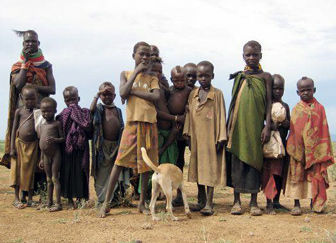Global food prices rise 40% in 2007 to new record
Global food prices rise 40% in 2007 to new record
mongabay.com
December 27, 2007
As world food prices continue to surge, 37 countries are facing critical food crises due to conflict and disasters, according to a report from the U.N. Food and Agriculture Organization (FAO).
FAO’s global food price index rose 40 percent this year to the highest level on record. Food costs in the world’s poorest countries — including Iraq, Afghanistan, Nepal, Pakistan, and 20 African countries — rose 25 percent to $107 billion.
“Urgent and new steps are needed to prevent the negative impacts of rising food prices from further escalating and to quickly boost crop production in the most affected countries,” said FAO Director-General Jacques Diouf in a press conference last week at FAO’s Rome headquarters. “Without support for poor farmers and their families in the hardest-hit countries, they will not be able to cope. Assisting poor vulnerable households in rural areas in the short term and enabling them to produce more food would be an efficient tool to protect them against hunger and undernourishment.”

|
FAO blames historically low food stocks, droughts and floods linked to climate change, high oil prices and growing demand for biofuels for the run up in global food prices. The organization is calling for improved access to inputs like seeds and fertilizer in the world’s most vulnerable countries and regions.
“We want the pressure on governments to finance expensive food imports to be eased so they can focus on long-term solutions,” said Diouf. “Short-term investments have to be accompanied immediately with measures to ensure water control, increase rural infrastructure and improve soil fertility and guarantee long-term sustainability of food production.”
Related
U.S. corn subsidies drive Amazon destruction
(12/13/2007) U.S. corn subsidies for ethanol production are contributing to deforestation of the Amazon rainforest, reports a tropical forest scientist writing in this week’s issue of the journal Science. Dr. William Laurance, of the Smithsonian Tropical Research Institute in Panama, says that a recent spike in Amazonian forest fires may be linked to U.S. subsidies that promote American corn production for ethanol over soy production. The shift from soy to corn has led to a near doubling in soy prices during the past 14 months. High prices are, in turn, driving conversion of rainforest and savanna in Brazil for soy expansion.







